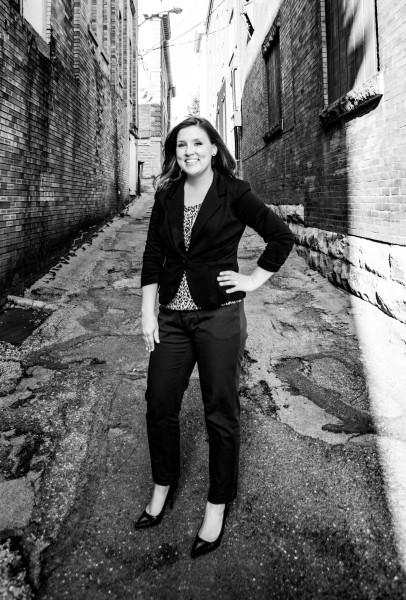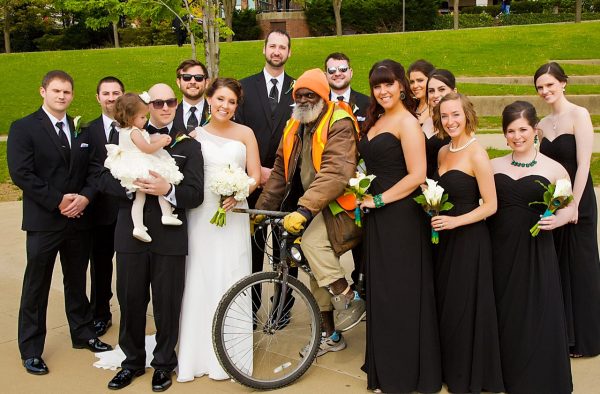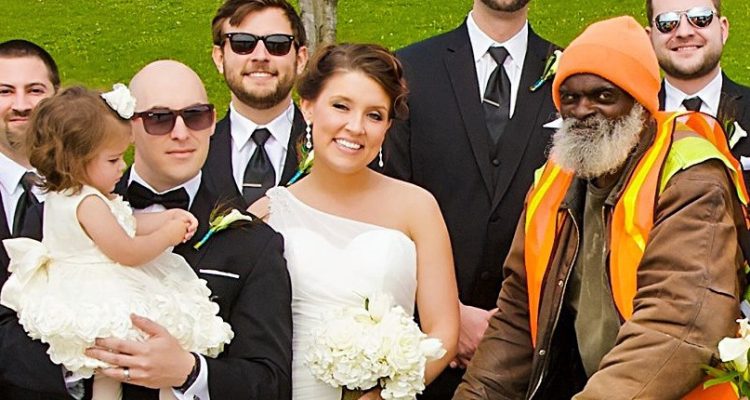By Steve Novotney
Weelunk.com
Allison Skibo works in a haunted office on the third floor of the City-County Building in downtown Wheeling.
The room is no larger than a decent cubicle, but it does have a nice-sized window that offers a northern view of the city of Wheeling along Chapline Street. The restless work space is situated behind administrative assistant Judy Beabout’s desk, and adjacent to City Manager Robert Herron’s office, but those two have never encountered the unearthly inside of Skibo’s walled-in station. Not the way she has.
No one has died inside – quite the opposite, in fact – and no one has been fired inside, either. This office, instead, is spooked by success. Since this space was created in 2002 to make room for Susie Nelson, she and Joelle Connors have served as the city’s marketing and community relations specialist. Nelson was in the position from 2002 until 2007, and then Connors followed from 2007 until 2012.
Nelson is now the executive director of the Community Foundation of the Ohio Valley, and Connors is employed by the Regional Economic Development Partnership, so the ladies are doing very well for themselves, and that’s because of the professional performances they afforded the citizens of the Friendly City.

One of Nelson’s top priorities was the scheduling for the then-new Heritage Port; she helped guide the creation of Wheeling’s “festival season,” and she proved vital with engaging a once-hibernating community.
And then Connors really woke them up.
She teamed up with Olivia Litman with the Wheeling Convention and Visitors Bureau to create “First Fridays,” an evening during which a trolley transports folks to the participating businesses in North Wheeling, the downtown district, East Wheeling, and Centre Market. Wine tastings, burger specials, live and local entertainment, and crafted brews are now part of it, and that is only because of persistence.
“They went into it with this attitude that they were not going to quit no matter what the reaction was,” said Jeremy Morris, the executive director of the Wheeling National Heritage Area Corp. “And that’s what they did. They didn’t quit, and now they have almost 40 different businesses involved, two ‘Party on the Patios’ a year, and there are large crowds even in the winter.”
In addition to smacking silly a complacent population with real, good news for a change, Connors also helped orchestrate the inventions of the Wheeling Wine & Jazz Festival, and Downtown Wheeling Inc., now known as ReInvent Wheeling.
So, yeah, there is a pressure on the 29-year-old Skibo. Not only does she have to keep pace with everything Nelson and Connors created during their respective tenures, but also with the everyday rigors involving press releases, media scheduling, and spokeswoman stuff.
And, yes, there is also that next great idea, the kind the people who’ve worked in this particular office have produced not all that long ago.
It is easy to tell who Skibo’s employer is when visiting her on the third floor. One eyewitness review reveals “WHEELING” on posters and bumper stickers and coffee mugs and wine glasses; and “WHEELING” on every bookshelf, on the walls, and on her desk.
Some call her “Mrs. Wheeling” for two reasons: She’s married, so the “Mrs.” seems appropriate, and it also fits because Skibo has exorcised the demons by figuring out how to be in two places at the same time. Kinda.
It seems that way to her at times, anyway.
Skibo graduated from Wheeling Park High School in 2004, and she departed Wheeling for the University of Pittsburgh that August. The main campus is located in the Oakland section of Pittsburgh, and it is jam-packed with diversity in all forms, as well as a healthy job market for young professionals.
She loved Wheeling, but Skibo had no idea where life would lead her. Returning to Wheeling, she admitted, was not on the top of her list because … well, because of a lack of opportunity.
So then Skibo graduates from Pitt in 2008, and enters the Western Pennsylvania workforce with a pair of public relation firms, falls in love, and gets engaged to Matt Skibo from Tiltonsville, Ohio.
And then the phone rings. It’s her mom.
“There’s a what?”
“There’s an ad in the newspaper,” he mother repeats a little louder.
And she told her daughter it was the, “perfect position.”
Smart lady, Allison’s mom is. But Gail Adams was named West Virginia’s Teacher of the Year, after all.
Novotney: Why, at this time, are you in Wheeling, W.Va.?
Skibo: Well, at this point I’m here to stick with all of the progress that we have here and the energy that’s building to carry it through and see it all come to fruition.
But I came back here because this is home. I love it. I love how safe it is, and I love that it is such a great environment for the family that I hope to have in the future. So that’s what made me come back here, but I am staying because I want to see this through.

Novotney: Did you have opportunities upon your graduation from college?
Skibo: Outside of Wheeling? Yes. I could have stayed in Pittsburgh .There were a lot more job opportunities. More of a variety. But Pittsburgh just wasn’t for me. I like to visit, but as far as the people, it’s a different environment, it’s a different type of community, and I just never felt like I fit in there. I never felt at home.
So I was often coming back to Wheeling on the weekends, or I was wishing I could be here to go to events or being with family and friends. The opportunities weren’t really enticing in Pittsburgh any longer which is why I started looking to come back home.
Novotney: When you first moved home, you found out that not many of your friends from high school and college lived in Wheeling, right?
Skibo: That’s true. That has changed since I’ve been back, but at least initially there was that question of, “Why are you going back there?” And that sense of, “Did you fail somewhere else?” “Are you just defaulting back to where you grew up?”
But I think now it’s neat to see more and more people moving back. They are wanting to move back. They want to find a job here so they can move back. I just recently had my 10-year high school reunion, and it was so exciting to see the energy that people have when just hearing about what’s happening in Wheeling and how excited they were. And so many people that were saying, “I live in Pittsburgh, but if I had the chance to come back to Wheeling, I would l love to. I would love to get involved with what’s happening here.”
So I thought that was really neat because I didn’t really expect that from a group of 20-somethings that graduated high school 10 years ago and, for the most part, moved on or went to school elsewhere and haven’t come back.
Novotney: What do you think has led to the changed attitude about Wheeling?
Skibo: I would say, at least in my opinion, I think that it was a lot of people who just got tired of that negativity and basically set out on a mission to put an end to it and to be a positive voice and not have this idea that they hate where they live, or that there’s nothing to do here, or that downtown was dead.
It was a desire not only to prove that that’s not the case, but also to help other people to see that it’s not the case. Not to just accept that it’s what everyone says, so it must be true, but I don’t want to hear that. I didn’t want to hear the negativity. Nobody in my circle of friends and colleagues wanted to be hearing that, so I think it was just this choice that we wanted to show off the positives, and I think that we have been able to create momentum for a lot of reasons.
I think what Mayor McKenzie and the council have been able to accomplish over the last six and a half years, in particular, has helped. There has been a lot of positive momentum there, so I think that there’s just a lot that has built up to change the mentality and change that negative perception.
And finally, people are not embarrassed to admit that they like Wheeling and that they want to be here which is what I had hoped for all along — that people would want to be here and are willing to shout from the rooftops that they love Wheeling.
Novotney: Although Pittsburgh was not the city for you, did your time away from Wheeling give you an added perspective that has allowed you to see Wheeling in a different light, as well?
Skibo: Completely. I’m so thankful that I was able to leave Wheeling for a little bit so that I could see all of the good things that are here that I didn’t necessarily appreciate when I was a teenager, and not realizing how nice it is to be able to get to work in five to 10 minutes, and being able to pay my bills and not to stress about what I’m going to do for money, and not have to worry about so many other things.
In Pittsburgh it was just day-to-day things that were concerning me. I had to leave so much earlier for work, or I had to take so long to get home, and everything was more expensive there. I would come home, and I would have dinner here, and maybe a drink and dessert, too, and it was still cheaper here than just having lunch in Pittsburgh at some places.
I think if I had not left and experienced that, I wouldn’t appreciate so many things that are central to what makes Wheeling a good place to live.
Novotney: How did you come to work for the city of Wheeling?
Skibo: Well, my mom would take credit for that.
She says – and I do sort of remember this – she says she saw the job posting in the newspaper, and she said, “This is going to be your job. This is what you need to do. You need to move back and work there.”
I vaguely remember that, but I also remember actively choosing to pursue moving back because I was recently engaged, and I knew if I were going to have any type of wedding that I could afford, I needed to come back home and make smart decisions financially about saving money and cutting back on rent costs, not to mention everything about the wedding would be more affordable here.
So that’s what drove me to revisit Wheeling. Knowing that I was going to take the next step in my life and eventually have a family; I wanted to do that in Wheeling.
I don’t think I applied anywhere else if I remember correctly. I think this was the only job that I set my sights on for being able to move back here. Fortunately, it worked out. I had unique experience that made it a good fit. I had never worked for government before, but because of the companies I had worked for (Larson O’Brien and GAI Consultants) previously, I think I had some knowledge that made it a more natural fit, and it was something I was excited about.
So I’m very lucky that it worked out the way that it did, and I have to give my mom credit. She was right. This was definitely the fit for me.
Novotney: Was this the type of job you were interested in when you first went to college, first selected your major, and when you first graduated from the University of Pittsburgh?
Skibo: Well, thank you for throwing me under the bus. Now all the Mountaineers out there reading this are now hating me.
When I was in college and when I graduated, I had every idea from I wanted to be a news anchor to I wanted to write copy for advertisements. I was kind of all over the place. It was all sort of under the same umbrella, but I had a lot of broad ideas about what I wanted to do.
So, I think everyone – and I am generalizing – has that idea that they want a job that they can be excited about, and that they can do something that makes a difference and that it matters. That’s finally what I’ve been able to do with this position. I get to give back to my community through my work, and to know what I am doing day-to-day impacts where I am living, where I’m working, where I’m having fun. It’s really neat to know that my job is not just something I do during the day to make money. It’s something that betters the community, and that’s something I can just feel really good about.
Now, thinking ahead, how could I ever do something where I didn’t feel this passionate about it? So I didn’t plan this position, or I didn’t expect necessarily to do marketing for a municipality, but my career path has led me here, and I’m just very lucky.
Novotney: Tell me about your duties. Tell me about your job.
Skibo: Well, I often say that it depends on the day, and it depends on the season because everyone knows, for the most part, that the summer is a busy time for events. So a lot of time I am helping to plan and organize events, but I also physically work the events too. And I also promote them, of course.
In addition to that, there’s a lot of behind-the-scenes things that aren’t necessarily something that everyone is aware of. For instance, I help with some of the marketing and public relations for the mayor and city council. I’m also helping with the State of the City event that’s coming up soon and working with the public works department to figure out how we can communicate storm water regulations and the best practices for that. That’s something I don’t think people would expect to be something that I do. It’s about reminding people when the trash (collection) is delayed, and it’s also helping to serve as the liaison between the city’s administration and media, as well as the communities.
So (I am) the person who is setting up interviews for the city manager or the mayor with the media, but more importantly, working with the media and the community to help them understand something they wouldn’t otherwise.
They’re not sitting here in the city building every day seeing what’s going on to understand why things are happening, so I feel the community relations part of my job is important, whether it’s through social media, press releases, or public meetings – whatever the case may be – just to help communicate what is happening with the city administration in a way people understand.

Novotney: Allison, tell me why you believe in Wheeling, W.Va.
Skibo: That is a very good question.
I would say partly because this is my home and this is where I grew up. Part of that is just ingrained in me – that I like Wheeling and that I want to see the city succeed as a whole.
But I think that much, much more than that, the people are what make me believe in Wheeling. The people were a big reason why I missed Wheeling and wanted to come back because I think they are good, caring, friendly people who say hi to you on the street, and ask about your family, and know who you are through a connection. I think they are a big reason why I believe in Wheeling because they are so many good people who are excited about Wheeling, and who are working to make it even better. They take the initiative to make their dreams come true. They make changes in the city, and I think, with all of those people and the fact that the number of people just keeps growing, it’s becoming contagious.
I think they are what make me believe in Wheeling so much.
Novotney: Now for the real “under-the-bus” question.
Whom do you root for if the Backyard Brawl between Pitt and the West Virginia Mountaineers is resurrected in the future?
Skibo: Well, I have to be honest. I’m not a huge sports fan, but I feel that my “people-pleaser” personality would cause me to root – even if I didn’t root for the Mountaineers, I certainly would not root against them, so ….
Novotney: OK, let me put the question a different way.
Let’s say there are two jerseys – a Pitt jersey and a WVU jersey – and you have to wear one of them. Which one do you wear?
Skibo: I would have to go WVU so I wouldn’t get beat up (she said while laughing).




